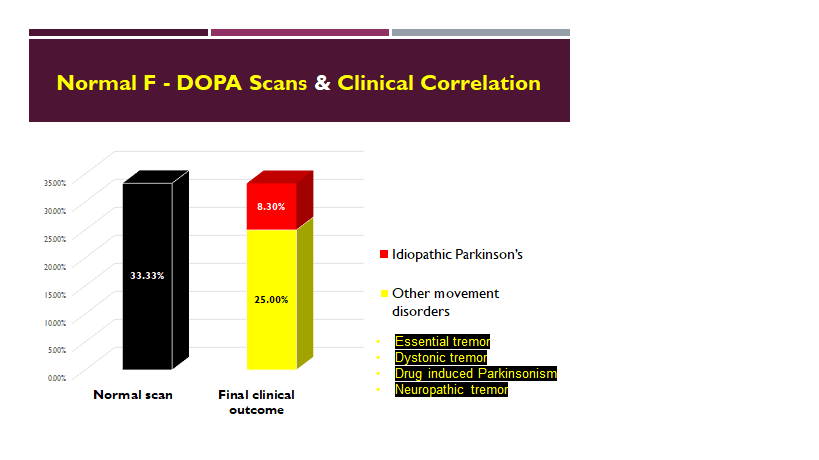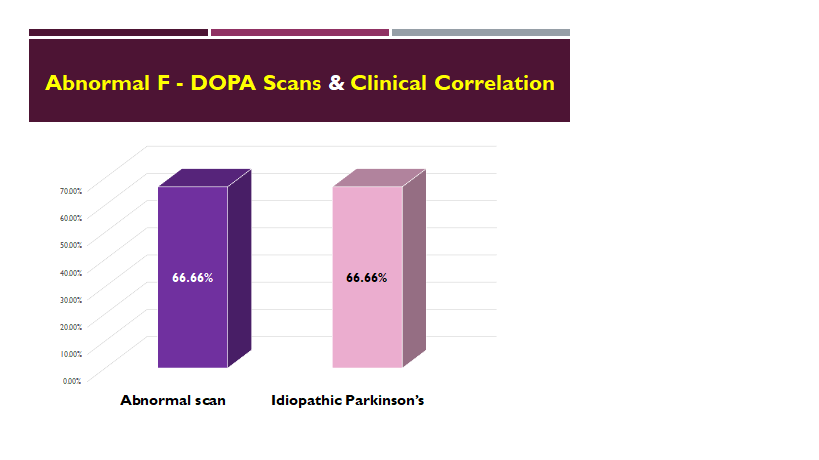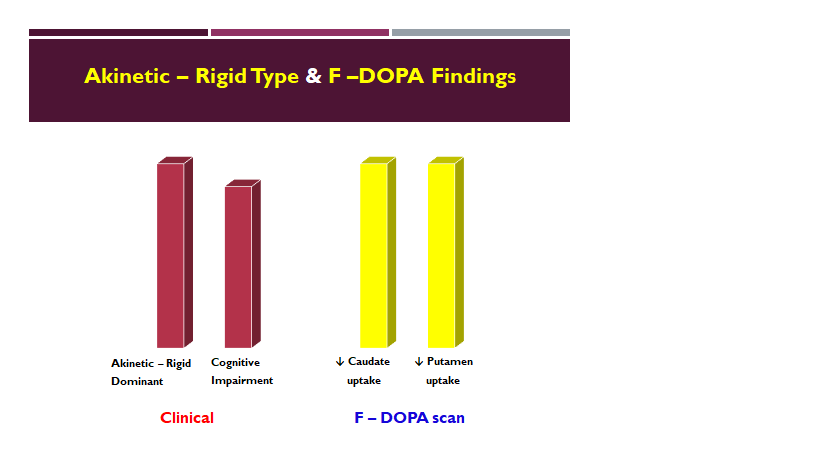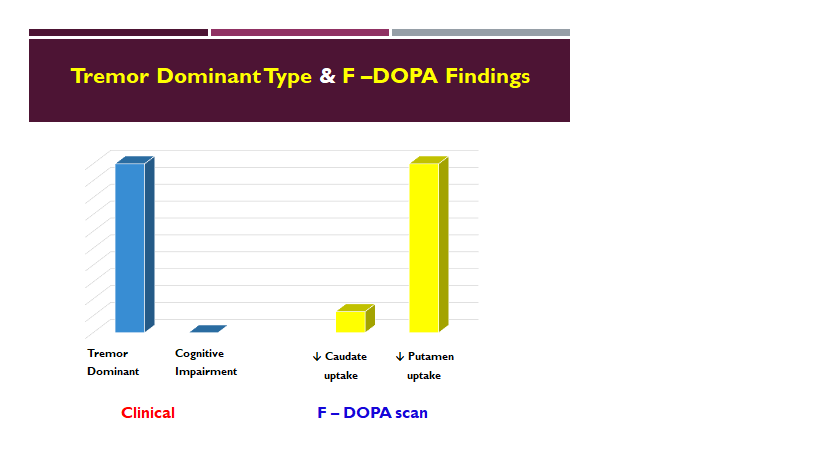Session Information
Date: Monday, October 8, 2018
Session Title: Parkinson's Disease: Neuroimaging And Neurophysiology
Session Time: 1:15pm-2:45pm
Location: Hall 3FG
Objective: The aim of this study was to determine the usefulness of 18 F-DOPA PET scan in diagnostically challenging patients at our movement disorder clinic in South Africa
Background: Differentiating conditions characterized by degeneration of nigrostriatal pathways from secondary Parkinsonism or other tremulous/dystonic disorders may sometimes be difficult on clinical grounds, especially in the early stages of the disease, or atypical presentations. 18 F-DOPA PET scan is an investigation that can determine the degree of affectedness of presynaptic dopaminergic activity. However, 18 F-DOPA PET scan was not available in South Africa until recently.
Methods: A retrospective analysis was carried out for patients that underwent 18 F-DOPA PET brain scans between 2016-2017. The patients’ medical records were assessed for asymmetry of symptoms, course of illness and length of follow-up. 18 F-DOPA PET scans were requested when there was uncertainty about the clinical diagnosis. Qualitative interpretation of the scan was performed based on the visual assessment of the uptake in the basal ganglia. A scan was considered abnormal when the visual assessment revealed a relative decrease in 18F-DOPA uptake in the putamen and caudate. The final clinical outcome was a judgment call based on progression at follow-up and response to levodopa or other medications such as primidone. A correlation of the scan findings with the final clinical outcome was performed using statistical agreement test.
Results: Twenty-four patients were included (mean age, 57.7 years; 13 men, 11 women, mean follow up 13 months). Of the 24 scans, eight scans were reported as normal, while 16 scans were reported as abnormal. There was a good agreement between the scan results and the final clinical outcome (kappa = 0.80). The scans were normal in essential tremor cases, dystonic tremor and drug induced Parkinsonism. We also noted that patients with atypical akinetic-rigid Parkinsonism had cognitive impairment and abnormalities in both putamen and caudate nuclei, whereas tremor dominant Parkinson’s patients had abnormalities restricted to the putamen with no cognitive impairment.
Conclusions: When there is uncertainty about the diagnosis, 18 F-DOPA PET scan is a useful investigation to differentiate conditions due to nigrostriatal degeneration from those with overlapping clinical presentations.
To cite this abstract in AMA style:
M. Khider, A. Dorutyer, J. Warwick, J. Carr. The usefulness of 18 F-DOPA PET scan in diagnostically challenging patients at a movement disorder clinic [abstract]. Mov Disord. 2018; 33 (suppl 2). https://www.mdsabstracts.org/abstract/the-usefulness-of-18-f-dopa-pet-scan-in-diagnostically-challenging-patients-at-a-movement-disorder-clinic/. Accessed February 11, 2026.« Back to 2018 International Congress
MDS Abstracts - https://www.mdsabstracts.org/abstract/the-usefulness-of-18-f-dopa-pet-scan-in-diagnostically-challenging-patients-at-a-movement-disorder-clinic/




